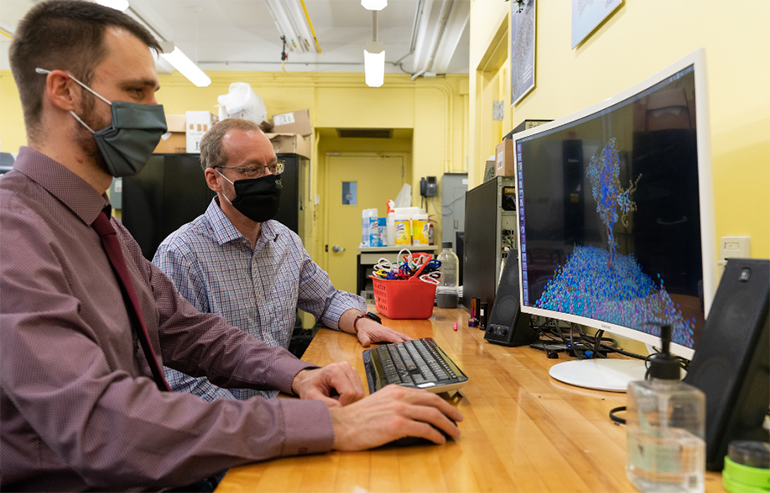Researchers at McMaster University in Ontario, Canada created engineered red blood cells to act as a new COVID-19 vaccine technology. The cell membranes have been studded with the SARS-CoV-2 spike protein, and in experiments the researchers have conducted in mice the cells can trigger an immune response with minimal side effects. The team reports that the technique is relatively quick and easy to perform, and it could be useful in developing vaccines against a variety of viruses and future COVID-19 variants.
It appears that humans work most effectively under pressure and times of crisis can be a powerful catalyst for innovation and new technologies. This has been true during the COVID-19 pandemic, where vaccine development went into overdrive, and we saw effective vaccines emerge at lightening speed, including several that capitalize on new technologies. This latest is also a relatively new approach, and the researchers behind it claim that it could pave the way for effective vaccines that have a reduced risk of side-effects.

“Current vaccine delivery methods often cause drastic immune system reactions and have short-lived responses,” said Maikel Rheinstadter, one of the developers of the new technology. “Some of the vaccines that have been developed have shown side effects. This delivery platform opens new possibilities for vaccines and therapeutics. This platform makes our own blood cells smart in many different ways. In this case it’s a vaccine. We are using our own cells much like nano robots inside of our bodies and whenever they see a disease, they can fight it.”
The method relies on red blood cells which have been repurposed to present the SARS-CoV-2 spike protein to the immune system. “We take red blood cells and remove everything from the inside,” said Isabella Passos-Gastaldo, another researcher involved in the study. “We then attach spike proteins to their outside to mimic a corona virus.”
The Canadian team can attach a large dose of the protein to the cell surface, but report that they cause only minimal side effects when tested in mice. They can also create the modified cells quickly and relatively easily, and can adapt them for other viruses or future variants of SARS-CoV-2.
“We have developed a method where we can trigger an immune response without the use of genetic material and yet we are able to synthesize these particles in a very short amount of time,” said Sebastian Himbert, another researcher involved in the study.
Here’s a video from McMaster University of the lead researchers of this study describing their work:
” alt=””/>
Study in PLOS One: Erythro-VLPs: Anchoring SARS-CoV-2 spike proteins in erythrocyte liposomes
Flashbacks: Artificial Red Blood Cells to Carry Oxygen, Drugs, and Work as Biosensors; 3D Printed Cells and Bioinks for Making Implantable Blood Vessels;
Via: McMaster University
